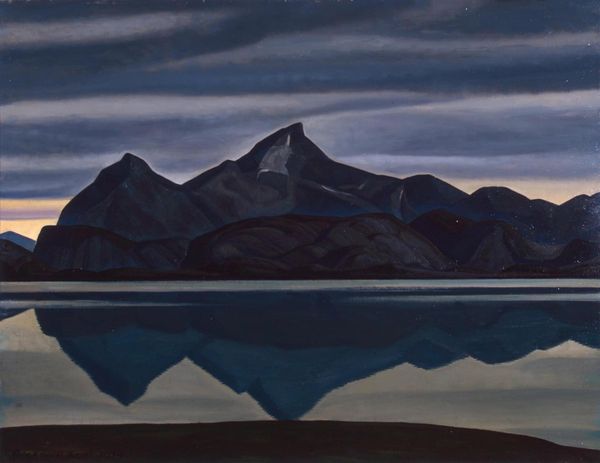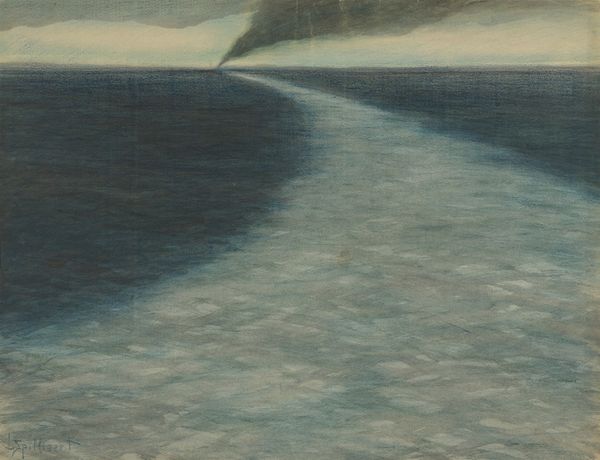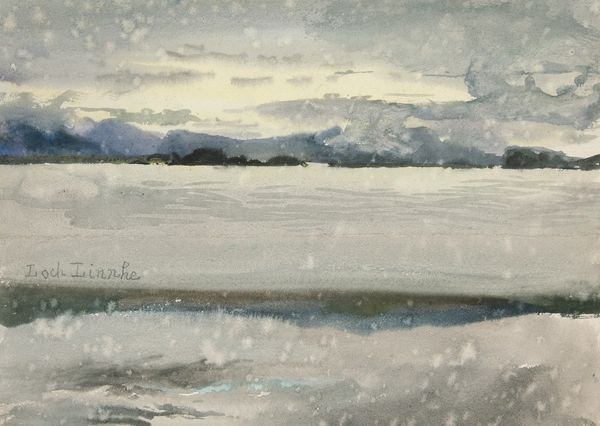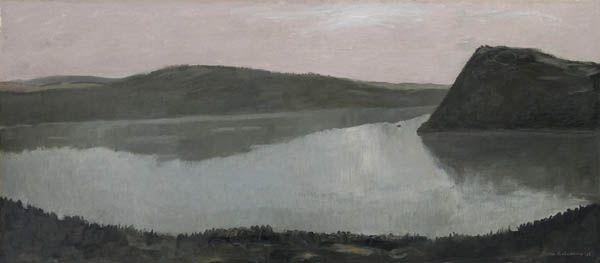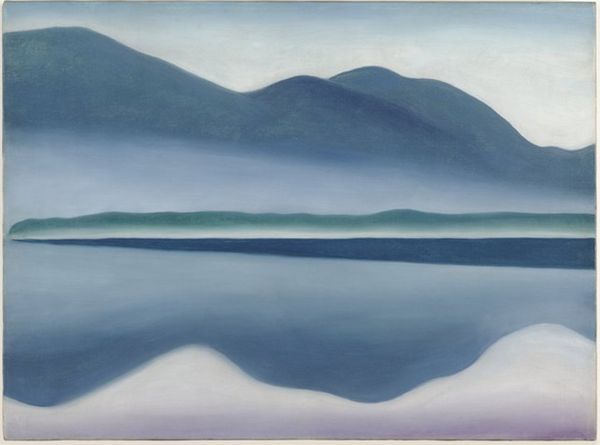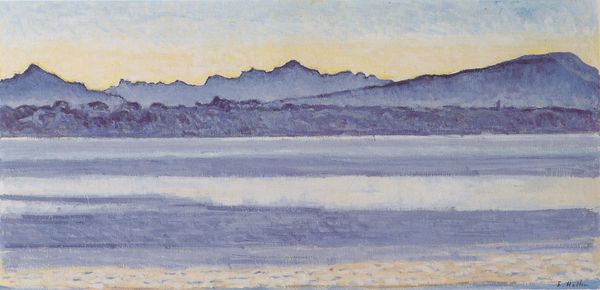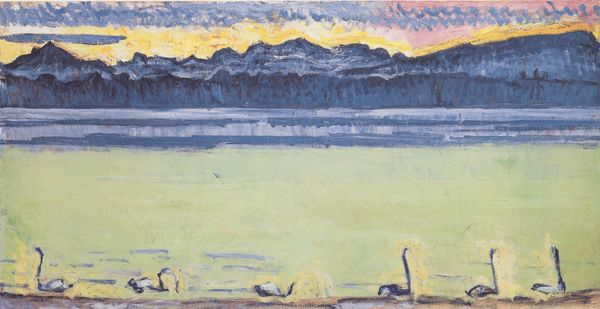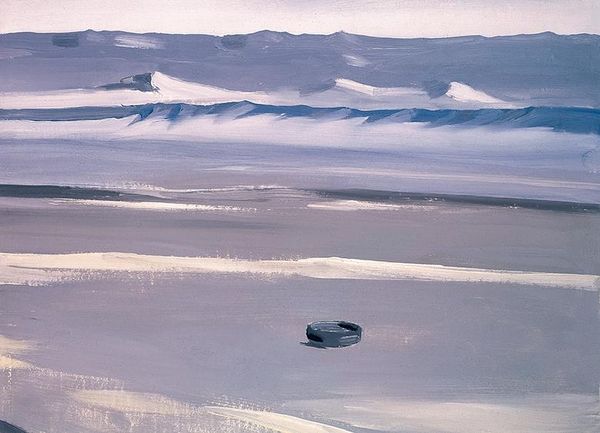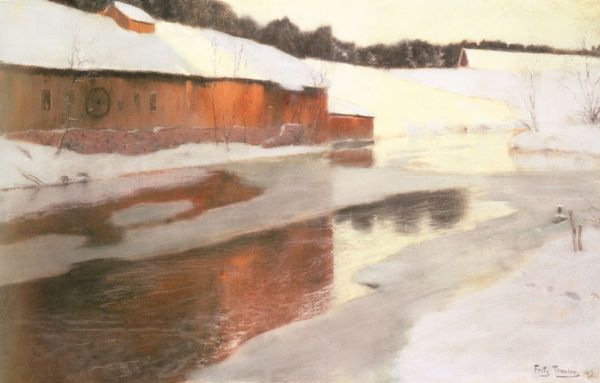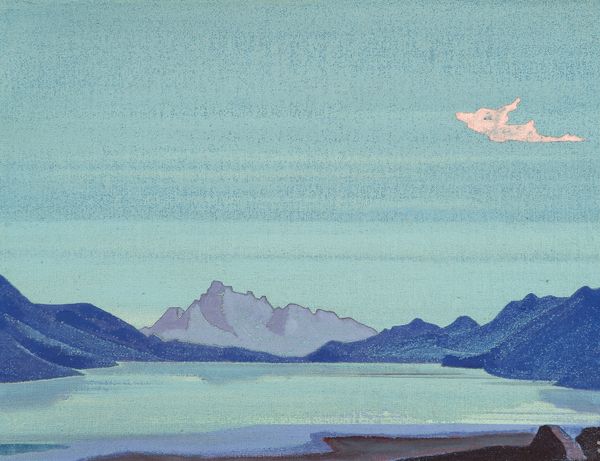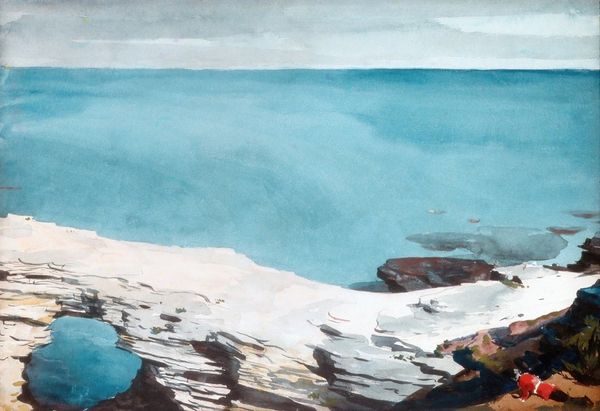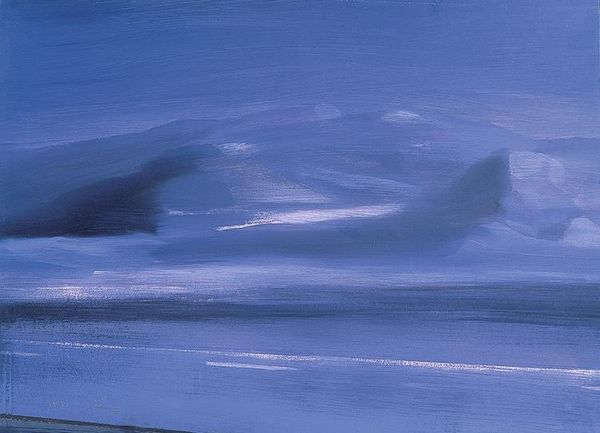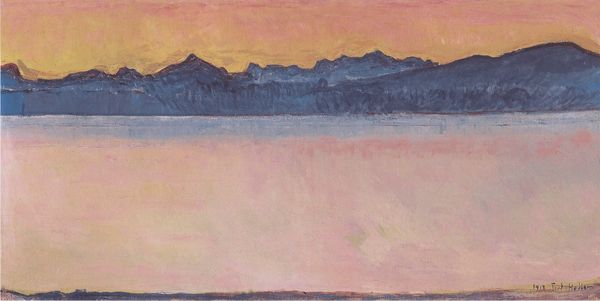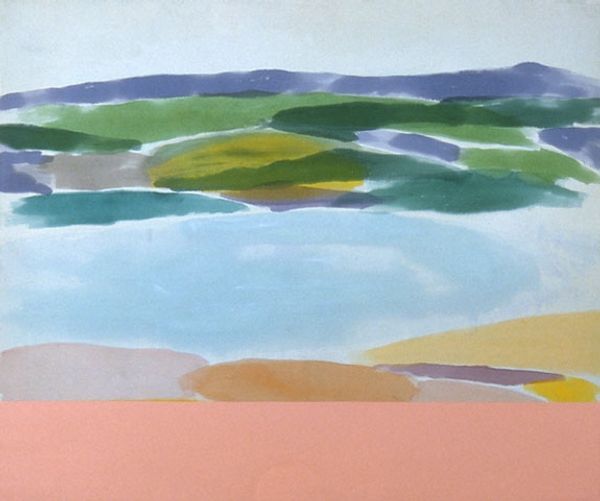
Copyright: Public domain
Editor: Here we have Akseli Gallen-Kallela’s "Lake Keitele," created in 1905 with oil paints. It's striking how still and reflective the water is. It almost feels more like a field of shimmering metal than a lake. What do you see in this piece, particularly in how the materials are used? Curator: I see a powerful interrogation of landscape painting itself. Look at the application of the paint. Broad, deliberate strokes. It’s not trying to mimic reality; it's calling attention to its *own* materiality. How do these flat planes of colour generate an image of depth for the viewer? Think of the production of the pigment itself and how its value transforms when Gallen-Kallela represents Keitele's shimmering lake in paint on canvas. Editor: So you’re saying it’s less about accurately depicting nature and more about exploring what paint can do? Curator: Precisely! And consider the social context. Finland was on the verge of independence at this time. Gallen-Kallela elevates the local landscape not as a picturesque view, but as something elemental, constructed, and *worked*. He treats his paint not like an illusion, but like material, which is inherently related to our material world. Do you see how these horizontal strokes echo labor, construction, something *made*? Editor: That makes me think of the labour involved in actually accessing and utilizing that landscape; fishing, forestry... it ties into national identity through those processes. Curator: Exactly! And that national identity is, in turn, constructed by very material processes of resource extraction. This painting acts almost like an unromantic celebration of industrial and economic potential embedded in that land, making us ponder labor, resources, and artistic creation. Editor: I had never considered how the act of painting, and the paint itself, could be so tied to industry and identity. It definitely shifts my perspective on landscape art. Curator: Mine as well, especially concerning how artistic traditions may subtly influence geopolitical events and economics!
Comments
No comments
Be the first to comment and join the conversation on the ultimate creative platform.
